Junkyard Gem: 1982 Dodge B250 Ram Wagon with 4-on-the-floor manual

There was a time, prior to the rise of the minivan, when Detroit pitched its full-sized passenger vans as very large and thirsty station wagons. At the same time, most of those vans came with manual transmissions and straight-six engines as base equipment (nearly all buyers after about 1970 paid extra for automatics and V8s, of course). Today’s Junkyard Gem, found in a San Francisco Bay Area car graveyard, is one of the rare 1980s American passenger vans built with six cylinders, three pedals and four forward gears… with floor-mounted shifter.
Chrysler’s Dodge Division stopped building forward-control A100 vans in 1970, replacing the A100 with the much larger B-Series line of vans (Plymouth sold the B-Van, too, as the 1974-1983 Voyager). Production with minor cosmetic changes continued through 1997, after which a major redesign kept the same basic chassis with a different appearance going until DaimlerChrysler axed the B-Series in favor of the Sprinter.
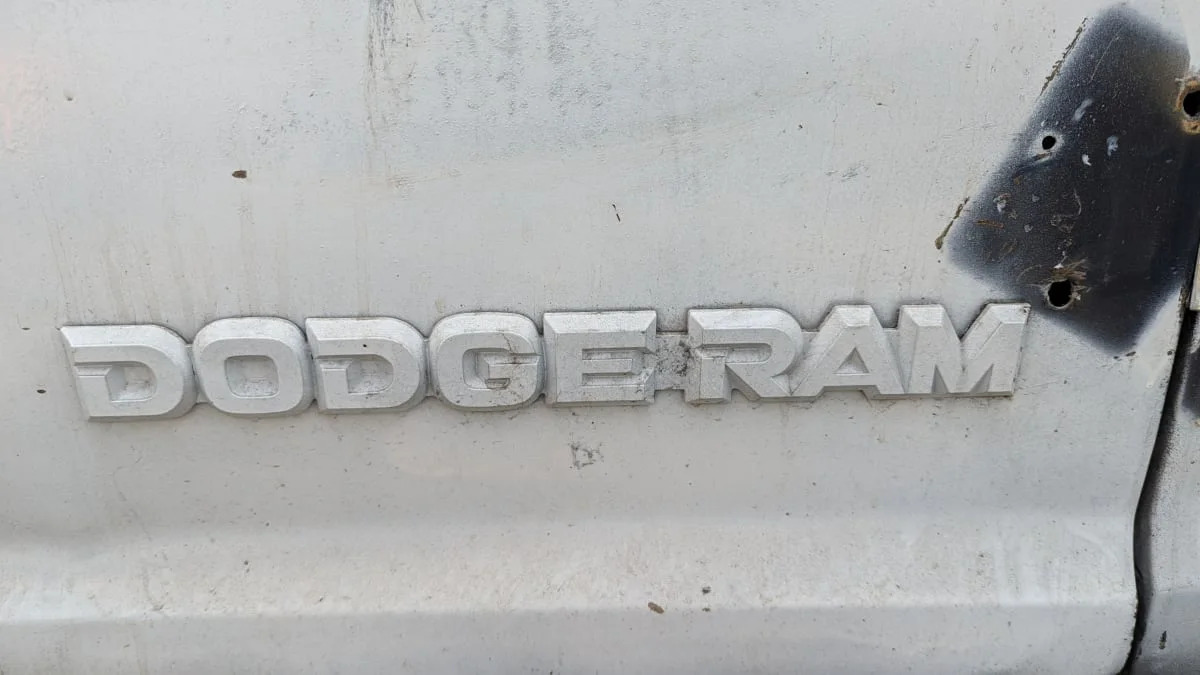
From the 1971 through 1980 model years, cargo versions of the Dodge B-Series vans got Tradesman branding, while the passenger version was called the Sportsman or Sportsman Wagon. For 1981, the Tradesman became the Ram Van while the Sportsman turned into the Ram Wagon.
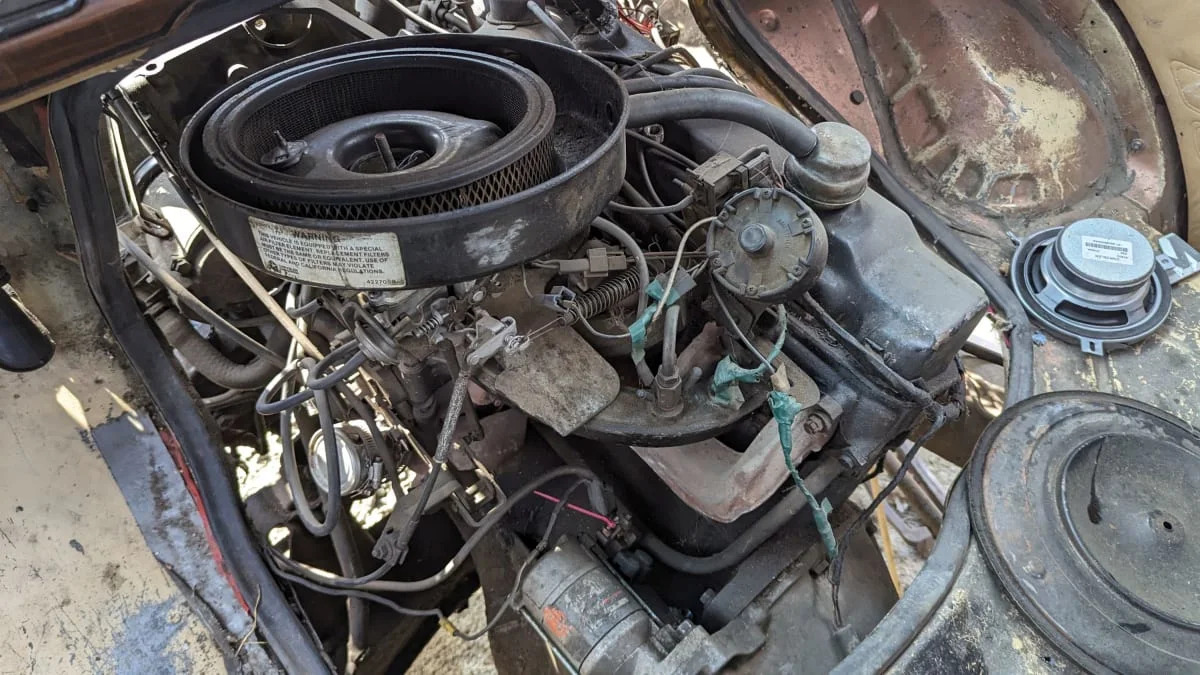
This one is a burly ¾-ton model with a curb weight pushing two tons (which is substantially lighter than Chrysler’s minivans of a decade later), so you’d have expected the original purchaser to insist on the optional 318- or 360-cubic-inch V8. Not so! This is a Slant-Six engine with 225 cubic inches (3.7 liters) of displacement, rated at 95 horsepower if it’s the original plant.
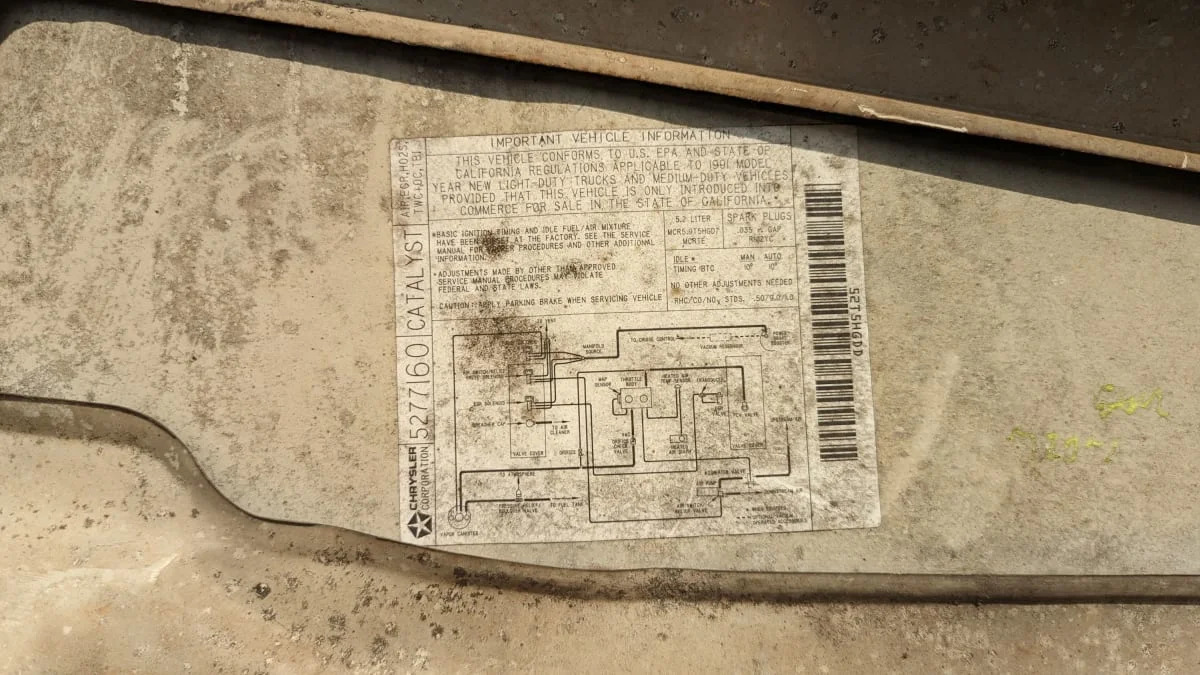
Just to confuse California emissions-testing personnel with its incorrect smog-specs sticker, the hood from a 318-equipped 1991 van has been swapped in. I’ll bet there were some heated arguments about this van at smog-check time, which makes me wonder why the hood-swapper didn’t just scrape off the decal.
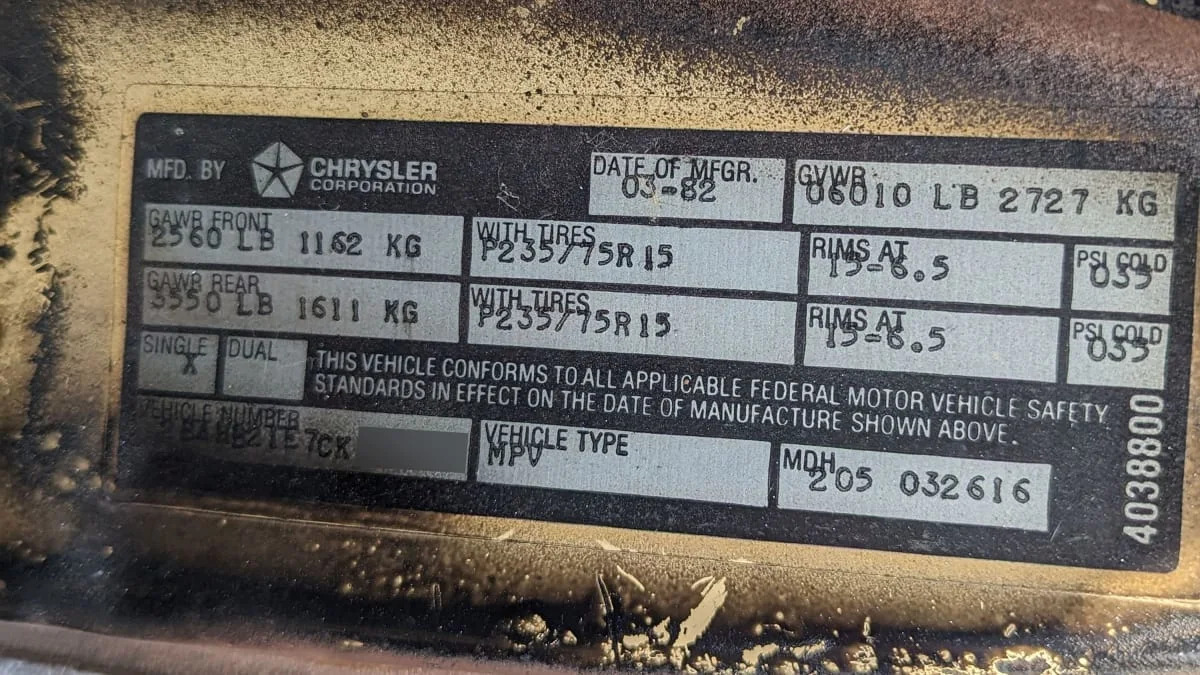
Of course, the owner could have pointed at the build tag on the door jamb for correct identification. Here we can see that this van was born north of the border, at the Pilette Road Assembly plant in Windsor, Ontario.
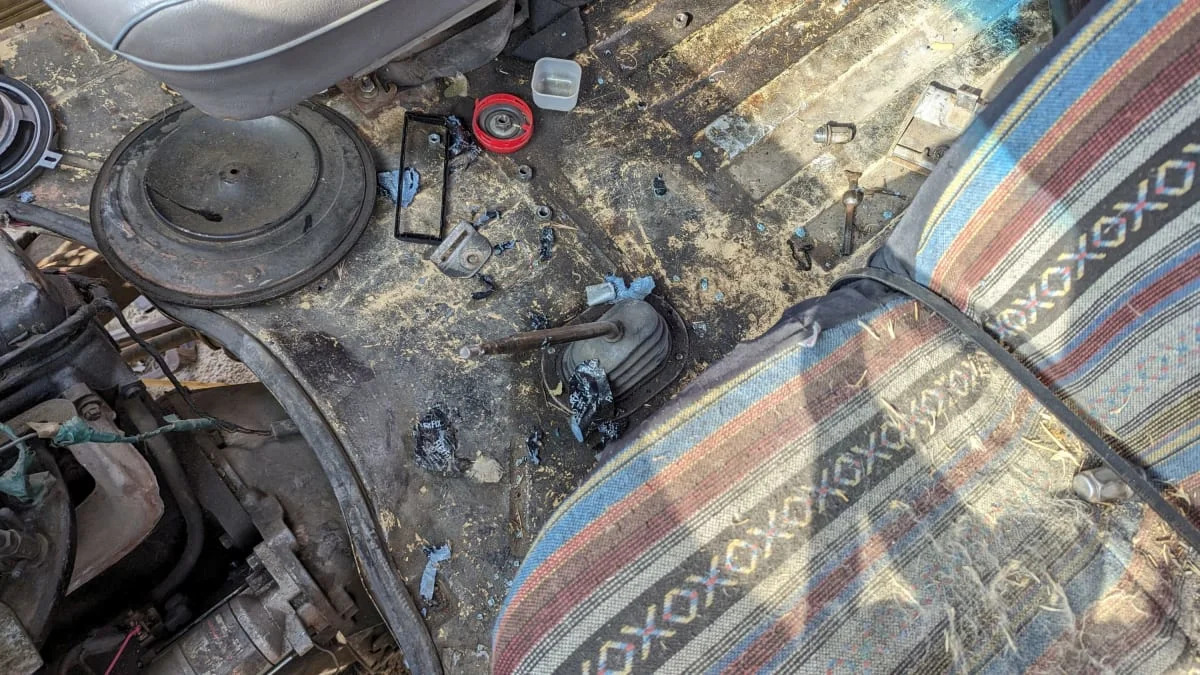
With most vans of this type that had the engine mounted over the front axle and under a doghouse in the passenger compartment, manual transmission shifters were mounted on the steering column to provide ergonomically sensible access for the driver’s shifting hand. Typically, this would have been a three-on-the-tree rig, although four-on-the-tree column-shift manuals were installed in some Ford and GM vans beginning in the late 1960s (sadly, none were built with five-on-the-tree setups). When Chrysler decided to add another gear to the B-Series vans for the 1980 model year, however, the overdrive-equipped four-speed’s shift lever was placed next to the driver’s right hip.
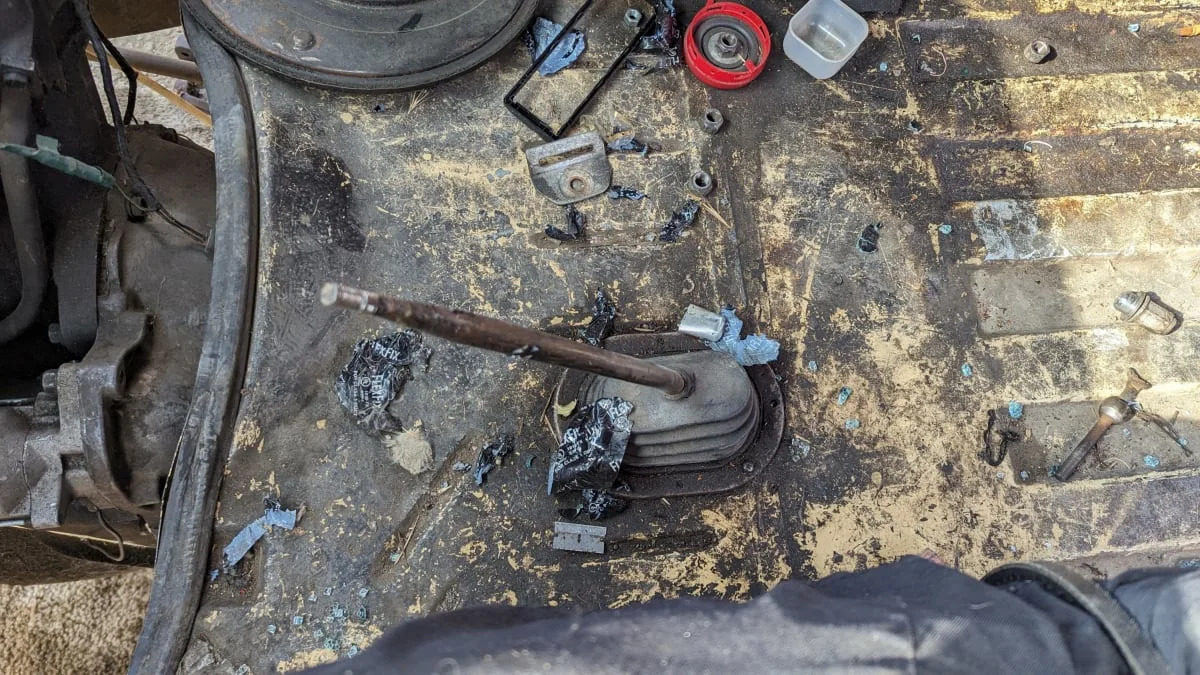
This location means that you are forced to reach back to shift gears, with ergonomic hilarity increasing when you’re already in second or fourth and fumbling for the knob. You’d get used to it after a while, but it could be frustrating in stop-and-go traffic.
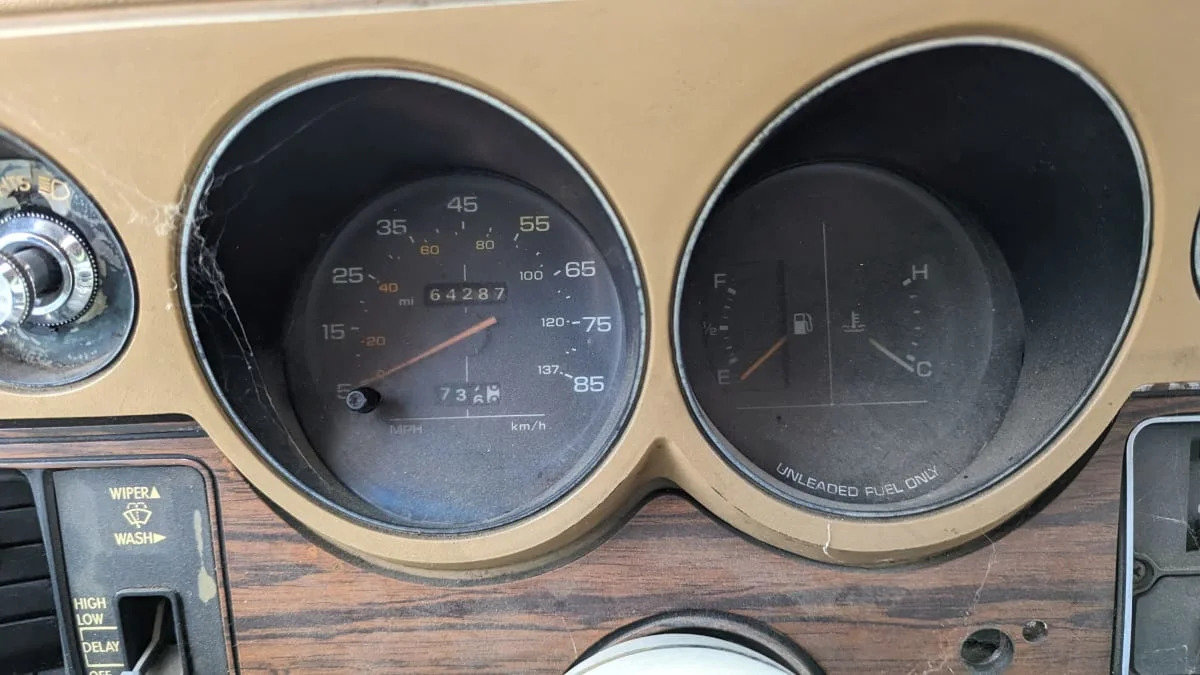
With a five-digit odometer, we can’t know how many miles this Ram Wagon traveled during its 42 years. This odometer could be showing 164,287 miles, but the unkillable Slant-Six/manual powertrain combination means it could be displaying 664,287 miles.
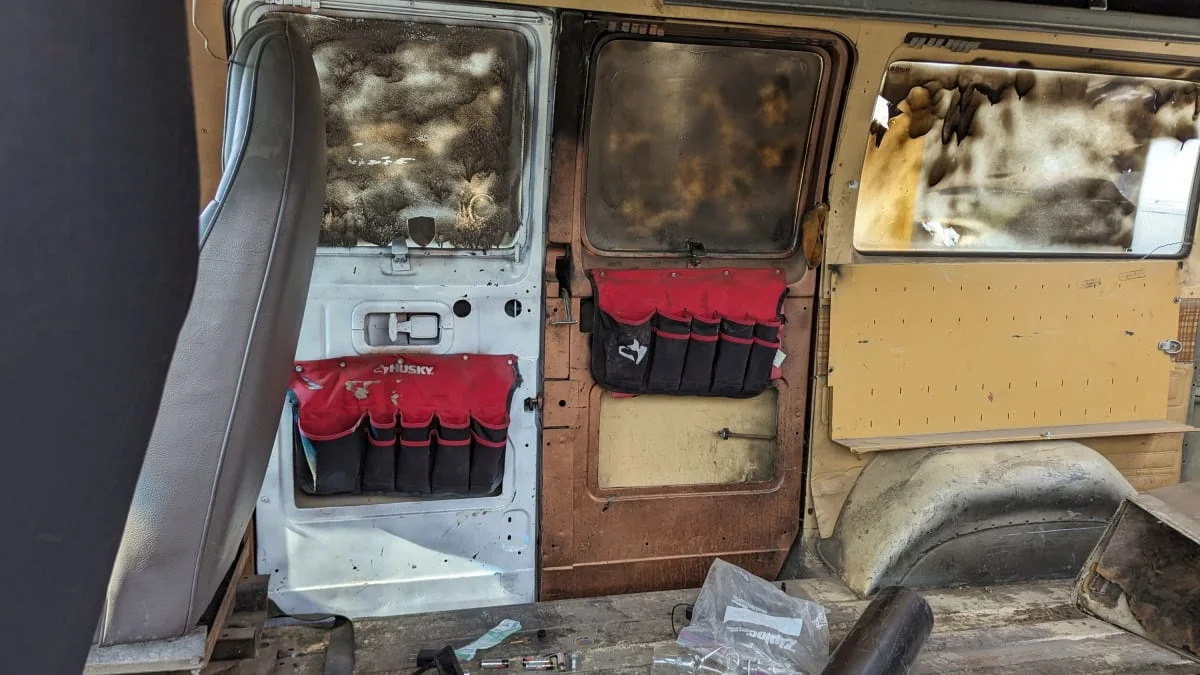
The tool pockets and generally battered interior indicate that it spent quite a while as a work truck.
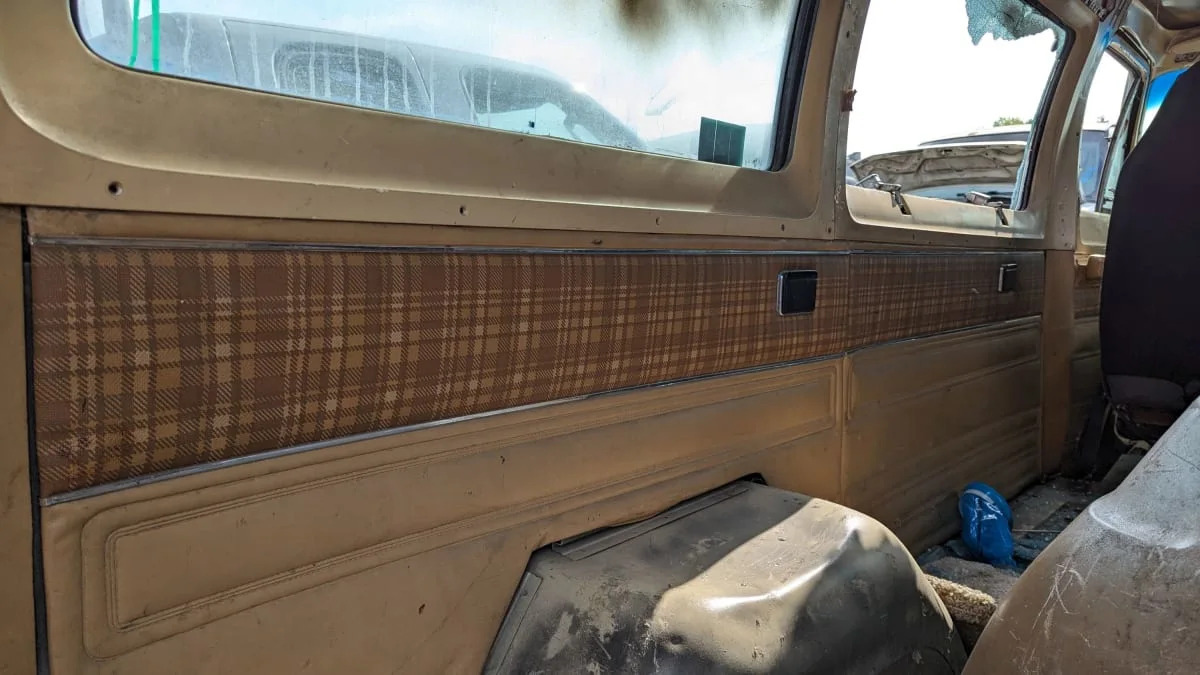
Still, some of the paneling and upholstery from its original calling as a passenger “wagon” remain. Those plaid fabric inserts look very similar to the ones in the ¾-ton 1973 Chevy Sportvan Beauville in which I spent my Malaise Era childhood.
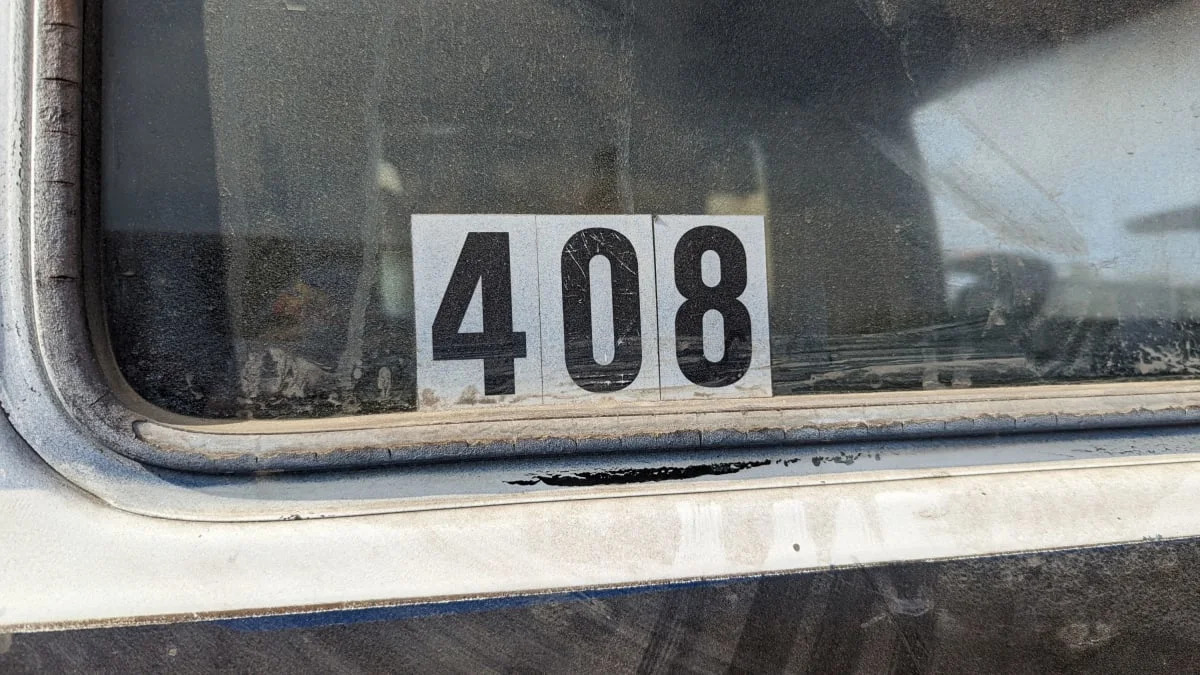
This could refer to Van #408, or it could refer to San Jose’s telephone area code.
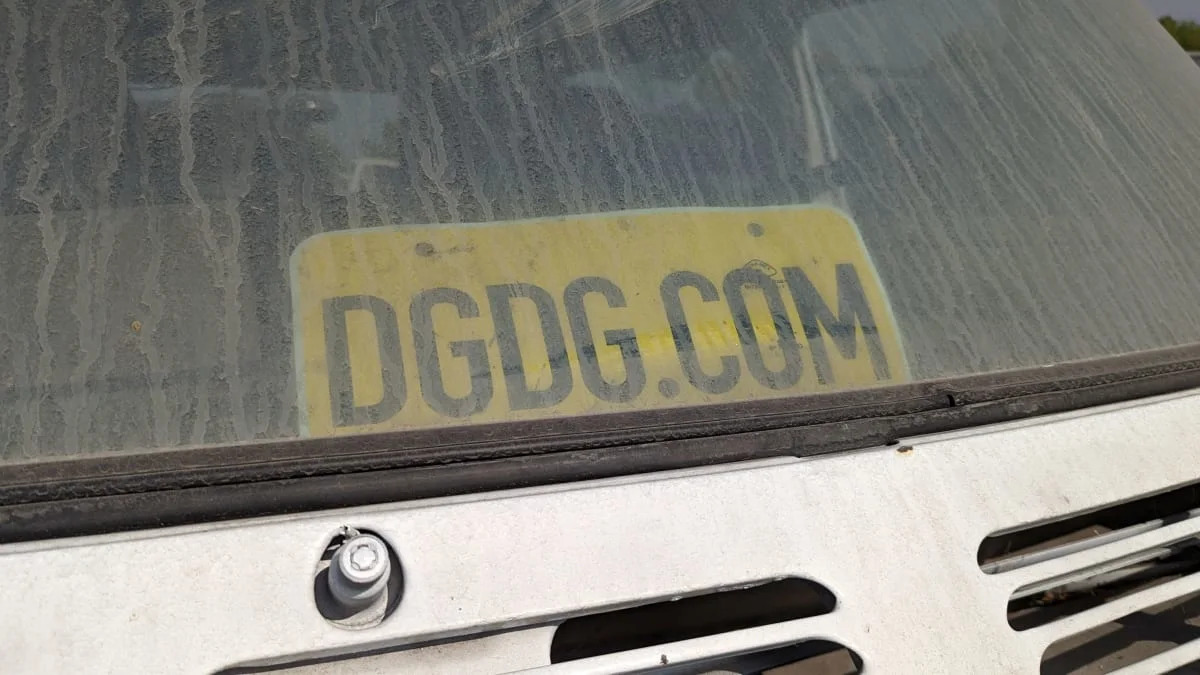
Was this van a parts runner for the Del Grande Dealer Group at the end, or did the DGDG just get it as a trade-in and hustle it straight to the nearest boneyard?
When you ask about vans, you hear about Dodge!







